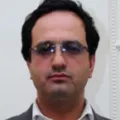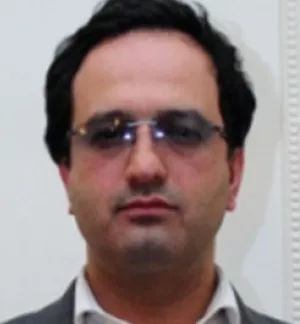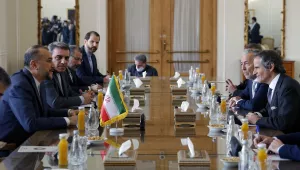Abstract
This article investigates the importance of Iran's current position in the Middle East and in the international security system. With post-9/11 political-security and geopolitical developments in the Middle East and the crisis in Iraq, Middle East issues have become more interconnected and heated international debate, connecting the region's security system to the international security system. In addition, recent developments in the Middle East have changed the balance of the region's power structure in favor of Iran, consequently increasing Iran's regional role and its bargaining power in the region's affairs. The author examines that this situation is the result of Iran's inherent geopolitical features, as well as cultural and ideological elements of its national power, the outcome of regional political-security developments, and, subsequently, the emergence of a new definition of the nature of threats against international security. As such, Iran has become an important connection between Middle East security and international security. The author concludes that Iran should take the utmost advantage of the current situation and strengthen its strategic position in the region.
INTRODUCTION
In the years since the September 11 attacks and the onset of crisis in Iraq, Iran's consolidation of its political-security role in the Middle East, and its impact upon regional and international security systems has been the focus of attention in international and Middle East security studies. The prevailing view in the West and the Arab world is that new political-security and geopolitical developments have changed the balance in regional power and political structure in favor of Iran. Accordingly, this situation has had negative effects on the United States' strategic interests, its regional allies in the Arab world, and on Israel's position. During recent decades, preserving a 'balance of power' policy between the regional actors has been the basis of American foreign policies in the region, especially in the Persian Gulf. The recent developments have unbalanced power equations in favor of Iran.
How does the security of the Middle East connect to the international security system and what is Iran's position in this process? What are the causes of Iran's increasing regional role? Answering these questions, I first argue that post-9/11 political-security developments and the crisis in Iraq have turned Middle East issues into the focal point of the international security system. At present, the two major international security matters, the war against Al Qaeda terrorism, and blocking its access to WMD, as well as defusing regional crises in Afghanistan, Iraq and Lebanon, are related to Middle East issues. I then discuss that with the recent global and regional developments, two key elements of Iran's national power, geopolitical features and ideology (the Shiite Factor), have gained more significance in settling these problems. From a geopolitical perspective, the increased importance of Al Qaeda terrorism on the one hand, and the continuation of the crises in Afghanistan and Iraq on the other, have put Iran at the center of recent geopolitical developments and the political dynamics of the Middle East. With respect to the Shiite ideological factor, I detail the political and security developments in Iraq's power structure and politics, the subsequent coming to power of the first Shiite government in the Arab world, along with the political developments in Lebanon in post-summer 2006 and spring of 2008, which have increased the role of Shiite factor, consequently extending the role of Iran from a national level to regional and international levels. Thus, Iran is crucially involved in issues which are simultaneously regarded as the top priorities of international security....
Barzegar, Kayhan. “Iran, the Middle East, and International Security.” Ortadogu Etutleri, July 2009
The full text of this publication is available via Ortadogu Etutleri.



